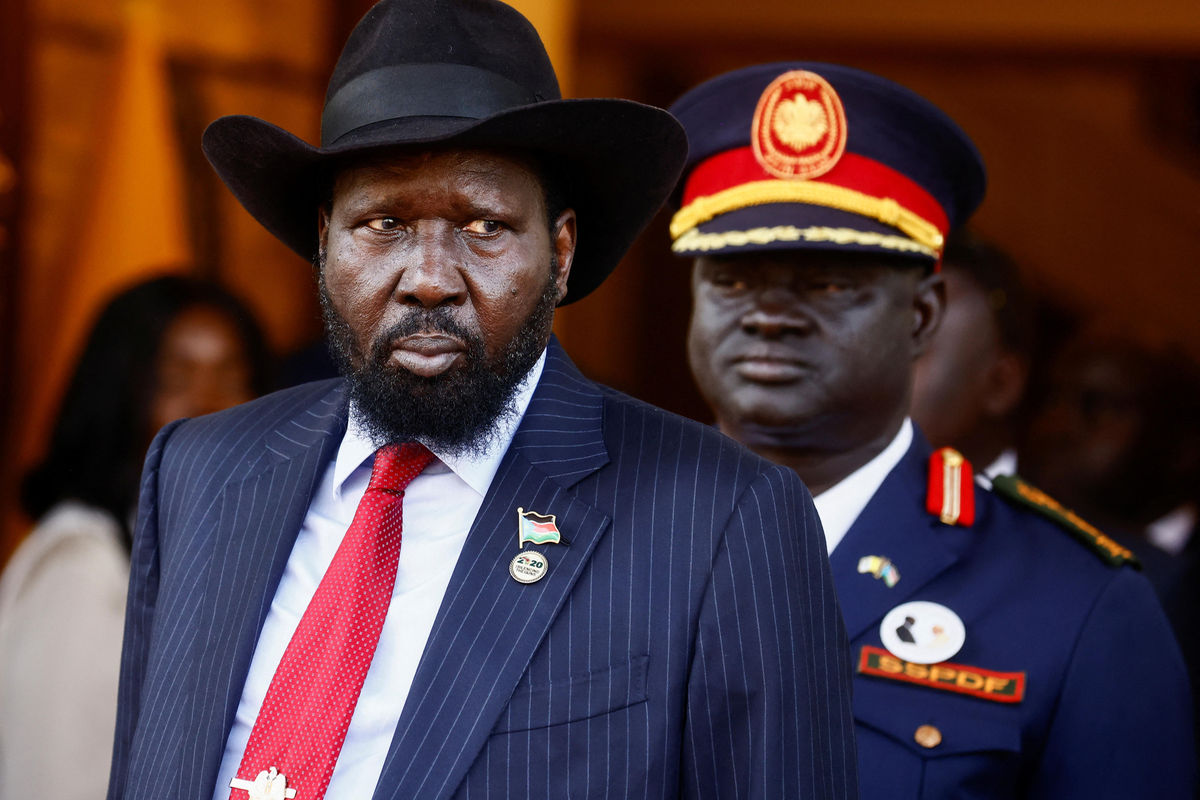
An auditor from South Sudan notes using IMF funds
The Ministry of Finance and Planning is required by the National Audit Chamber of South Sudan to provide an accounting of how $114.4 million that it got from the International Monetary Fund (IMF) for support with the budget and balance of payments in 2023.
The money came from emergency funds provided by the IMF’s Rapid Credit Facility-Food Shock Window (RCF-FSW), which was obtained in January 2023 to support Juba’s depleting foreign exchange reserves and deal with the worsening humanitarian crisis brought on by flooding, declining oil production, and supply chain disruptions worldwide as a result of the conflict between Russia and Ukraine.
The IMF funds made only slightly more than one percent of South Sudan’s expected SSP 1.39 trillion ($10.67 billion) overall budgets for the fiscal year 2022–2023.
South Sudan requested and obtained emergency funding from the IMF under the Food Shock Window. On January 19, 2023, the Fund’s board approved SDR86.1 million ($114.38 million), and four days later, the money was distributed.
Funding was provided for both budgetary and balance of payments support in order to finance the anticipated fiscal deficit for the fiscal year 2022–2023, which is projected to be SSP54 billion (or 5% of GDP).
Sixty percent ($68.62 million) of the entire facility was to be on-loaned to the government by the Bank of South Sudan on the same terms as negotiated with the IMF.
$15 million of the disbursement was to go to the World Food Programme, $5 million to the International Organization for Migration, and the remaining amount was to be used as conditional transfers to finance the ministries of General Education and Instruction and Health in accordance with the budgetary allocations for 2022–2023, in an effort to lessen the impact of rising food prices and climate shock on vulnerable populations.
The irregular awarding of tenders to unqualified bidders, single-sourcing in the awarding of procurement contracts, irregular disbursement of funds, irregular advance payments to contractors, implementation of projects not budgeted for, and failure to withhold tax on contractor payments are all detailed in Auditor-General Steven Kiliona Wondu’s Compliance Audit Report, dated April 3, 2024.
The government’s use and distribution of emergency funding obtained through the Food Shock Window of the IMF’s Rapid Credit Facility “were not in compliance, in all material respects, with the Letter of Intent and the identified audit criteria,” according to Mr. Wondu, citing the results of the audit procedures carried out.
The Auditor-General requests that the Finance Ministry take full responsibility for the money allotted for budget support and that all government receipts and outlays be within the approved budget established by the National Assembly.
In order to increase openness, he also wants all government payments to be handled via the integrated financial management information system (Ifmis).
Our email was not responded to by the central bank.
According to an IMF representative, “we believe that the funding provided to the major budget items (health and education), as well as the funding to the World Food Program, the International Organization for Migration, and the resources utilized by the central bank for reserves, were in line with the LOI.”
“On the other hand, we have observed that unused balances have been reported against the different budgetary allotments. As a result, we are working with the authorities to determine the necessary actions to guarantee that the remaining balances are utilized in accordance with the agreement.”
Even though the statement for the bank account held by the Ministry of Finance and Planning at the Bank of South Sudan showed a withdrawal of the amount on July 18, 2023, the report reveals that evidence of the expenditure of $3 million by the South Sudan Revenue Authority was not available for audit.
“Neither the justification nor the corroborating paperwork for the withdrawal were given. Furthermore, as per the MOFP management’s responses to the Management Letter, in the event that it is verified that the use was irregular, the money would be reimbursed. But no proof of the reimbursement was given for the audit,” the Auditor-General claims.
The Ministry of Health has a $1 million disparity in its financial statement showing payments to the ministry of $8.99 million instead of the $10 million that was budgeted, according to the audit.
“There is a $1,001,314 variance that was not explained, and no proof was presented to verify the funds’ existence,” the report states.
The South Sudanese Taxation Act (2009) mandates that government institutions that pay contractors withholding taxes at the time of payment. However, the Ministry of Finance and Planning failed to withhold any taxes from payments totaling $8.99 million made to four suppliers of medical supplies and medications. This is something that the Auditor-General has observed.
Additionally, officials from the health ministry purchased $9.29 million worth of medications and medical supplies without following the proper procedures, in violation of the Public Finance Management Act (2011), which stipulates that loan proceeds must be used in compliance with the government procurement laws that apply to public procurement when applicable.
The study states that given the circumstances, it was not possible to verify if the purchase was made in line with the approved budget and the country’s known needs for medications and medical supplies.
Without presenting proof of special circumstances supporting single-sourcing or compliance with PFM law regulations, the MoH hired four contractors to supply $9.29 million worth of medications and medical supplies.
He also mentions payments made on July 13, 2023, to suppliers of medical supplies and medications; nevertheless, the items were delivered between November 2023 and February 2024, with some still pending in March 2024.
Section 30(5)(b) of the PFMA Act, 2011 states that accounting officers must attest that payments are made in compliance with contracts and payment guarantees, or that the necessary security has been granted in the government’s name to ensure that contracts are performed to the fullest extent possible, when payments are due prior to the completion of work, delivery of goods, or provision of services.
According to Section 7 of the agreement between the ministry and the suppliers, payments are due as soon as the supplies are delivered and the necessary paperwork, including the bill of lading, shipment certificate, and invoice, is submitted.
The study also shows that the verification and acceptance committee reports are missing, which makes it challenging to determine whether the medical supplies and medications were received in the right quantity and whether they adhered to the contract’s requirements for standards and specifications.
According to the auditor, the Ministry of General Education and Instruction paid 13 contractors $2.93 million in advance, even though these payments were not specified in the executed contracts.
It also carried out initiatives like building and renovating schools that were not included in the work plan, budget, or procurement schedule.
Eight contractors were chosen despite their bids not meeting the requirements for legal compliance, according to the audit.
Contracts were given to eight contractors whose bids did not match the technical evaluation standards and three more whose technical capacity was not assessed.
The irregularities are irregularities in the procurement process. Furthermore, the research states that the contractors hired could not be able to fulfill their obligations, which would result in subpar work, postponed projects, and losses.
According to the Auditor-General, failing to withhold tax is not only against the law but could make it more difficult for the government to collect taxes.
All Categories
Recent Posts
Tags
+13162306000
zoneyetu@yahoo.com



